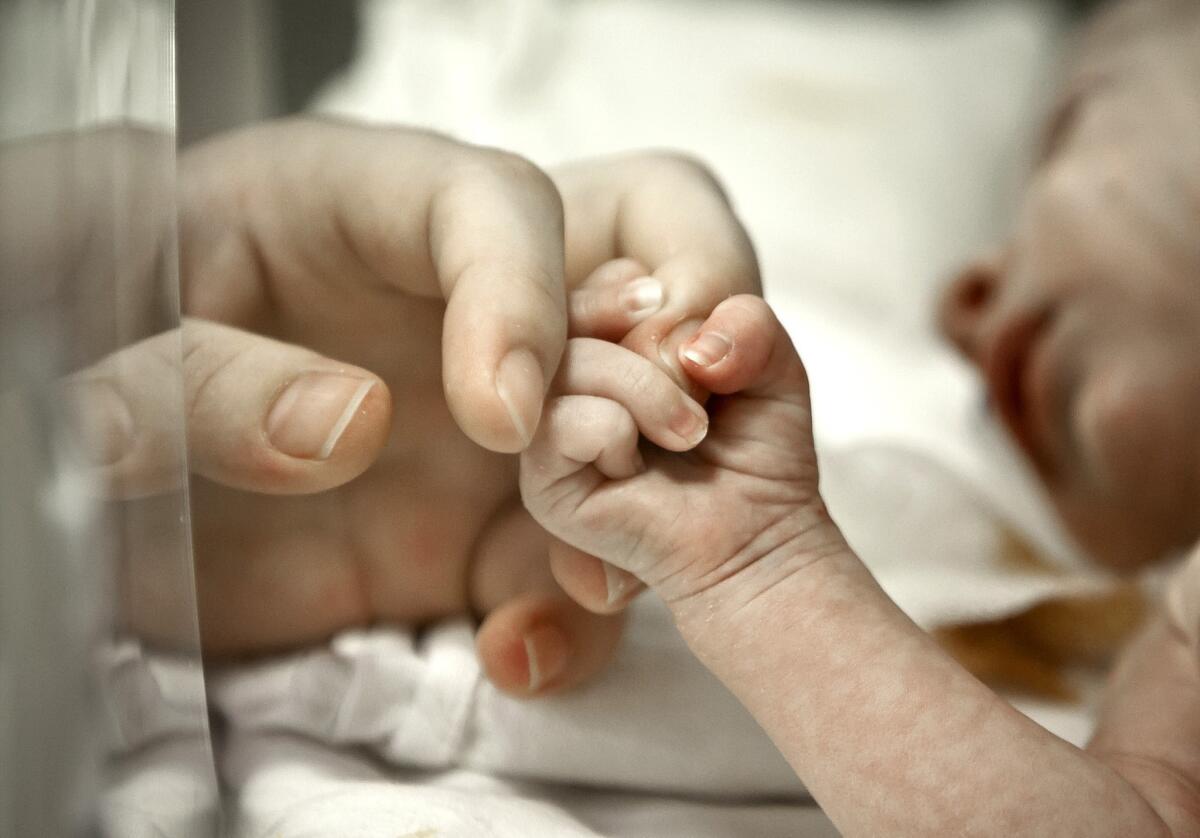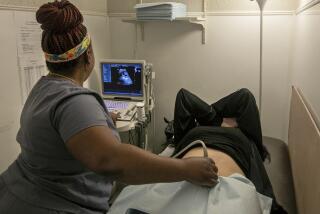Genetic screening: Every newborn a patient

This year marks the 50th anniversary of routine newborn screening in the United States. Since 1963, tens of millions of babies have had blood drawn from their heels to be tested for rare diseases.
The program has unquestionably prevented tragedies. Screening for phenylketonuria, for example, has meant that newborns affected by the condition can be placed on a special diet in the first days of life, thereby preventing mental retardation. Screening for sickle cell disease, congenital hypothyroidism and some other rare conditions has saved lives as well.
But routine screening is now being expanded in ways that demand scrutiny.
VIDEO: Presidential panel urges gene privacy protection
In 2005, California became an early adopter of a much broader newborn screening program. Instead of looking for just a handful of conditions, blood from infants is now analyzed for more than 50.
And advocates are pushing for even more. They envision expanding the technology to sequence every baby’s genome, providing physicians with a full genetic profile to help predict disease risks, behaviors and drug tolerances.
This is not a mere pipe dream. The National Institute of Child Health and Human Development and the National Human Genome Research Institute are in the process of funding a first round of research proposals to integrate genomic technologies into newborn screening.
Opening up newborn screening for genetics has mostly been viewed as an issue of technological capacity: Is the technology sufficiently fast and reliable to make genetic screening feasible for health purposes? But a study I conducted of recent experiences with the expansion of newborn screening shows that incorporating new technologies can produce a host of unintended consequences for families.
One major sticking point with expanded newborn screening is that informed consent is not required in any state; just in the District of Columbia. The program started when there was limited attention to consent issues, and there was concern that asking for consent would undermine the program’s public health mission.
But even today, parental consent is not required, and as the number of things screened for has risen, so has the potential for false positives. The result is that parents often first realize the implications of newborn screening when they get a call from their pediatrician about retesting the baby because of a potential problem discovered from blood testing. Parents have told me that they were “devastated” or “freaked out” by this initial call.
For every infant identified with a disease, many more false alarms are triggered. A California study published in the journal Genetics in Medicine found that of the 4,580 infants referred over a four-year period to a metabolic clinic because of a positive result on a newborn screening, only 16% were confirmed to have an actual disorder. The majority of the findings were false positives.
While laboratories run the tests again, parents are left to agonize about the possibility that their baby has a potentially devastating condition. This can even affect a parent’s relationship with the child. Several parents I spoke to described how they were so worried about losing their babies that they hesitated to bond with them.
Because genetic screening will greatly expand the number of conditions and risks screened for, the potential for false positives will also be greatly expanded.
Genetic screening also raises the issue of what genomic researchers refer to as “variants of unknown significance.” There are huge gaps in our understanding of genetic conditions, and even genes that predispose someone to a condition don’t necessarily guarantee it. But parents are unlikely to ignore information, no matter how ambiguous, if the health or life of their child could be at stake.
The most robust finding in my study was that during periods of uncertainty after a false positive result, parents tend to organize their lives as if the result is certain and the child is definitely affected with the suspected condition. They change diets and sleeping patterns, postpone returns to work and remain hyper-vigilant about their child’s health.
As more diseases have been added to the screening list, the cost-benefit ratio has fallen. Some conditions, for example, can’t be cured, so the only real benefit from screening is that parents simply know soon after a child’s birth that he or she will suffer or even die.
It could well become technologically feasible soon to provide every newborn with a full genetic printout at birth. But that doesn’t mean we should do so. Giving parents a torrent of information about a child’s genetic disease risk will profoundly change the experience of bringing a new life into the world. If genetic screening is adopted for newborns, only one thing is certain: Every infant will be born a patient.
Stefan Timmermans is a professor and chair of the UCLA Department of Sociology and faculty associate with the Institute for Society and Genetics. He is the author of the book “Saving Babies? The Consequences of Newborn Genetic Screening.”
More to Read
A cure for the common opinion
Get thought-provoking perspectives with our weekly newsletter.
You may occasionally receive promotional content from the Los Angeles Times.










